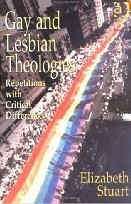One of the best ways to prepare oneself for the onslaught of religion-based hostility is to read some of the very many books on the subject that have emerged over the last thirty years or so. But with such a wealth of titles available, and the field constatnly expanding, the obvious question is where to begin? To which the obvious reply is, where are you starting from?
The question matters. You need to be clear on whether you want a simple introduction, a general but comprehensive overview for playpeople, or a scholarly tome filled with notes, sources and all the necessary qualifications, ifs and buts. Are you looking for approaches rooted in scripture, or Church teaching, or both? From a gay male, lesbian, or trans perspective? All these questions, and more, will influence your choice. In my detailed posts for each book, I have attempted to provide answers to these questions. The labels included in each post will help you to find books on a specific topic. With time, I will be building in thematic lists, a search engine, and other means to access exactly what you personally will find helpful - but all these refinements take time, while I am simultaneously trying to expand the number and range of books included. I crave your patience.
In the meantime, I offer some suggestions of what might be the most useful for specific purposes.
For a very simple, introductory overview of Scripture and Church teaching, I was impressed by
"The Bible, The Church and Homosexuality", by Nicholas Coulton. Written from an Anglican perspective, but is also more widely applicable.
Also tackling both Scripture and Church teaching, but going into more detail, former Jesuit John McNeill's
"The Church and the Homosexual", was one of the very first and is still a classic.
"A Question of Truth" by the Dominican priest Gareth Moore covers much the same ground, and is much more recent.
On Scripture specifically, I think the best for the general reader is
"Dirt, Greed and Sex" by the Episcopalian L. William Countryman. For a later, more Evangelical approach to the same subject, read Eugene Rogers, ...If you are ready to tackle a more academic treatment bristling with footnotes, then read the chapter on Scripture in the landmark
"Christianity, Social Tolerance and Homosexuality" by John Boswell. (This is also of fundamental importance for gay church history, and the development of theology). If you are put off by the excessive footnotes and Greek & Latin quotations, you will find summaries of his arguments in many of the other books).
The Catholic priest, theologian and psychotherapist Daniel Helminiak has written that McNeill, Countryman and Boswell (noted above) were the three books that nmost influenced his own thinking and understanding. Helminiak's "
What the Bible Really Says About Homosexuality". Helminiak's book is often listed alongside those three.
It is important though not to get bogged down in biblical studies of homoeroticism by dealing only with fending off the oppressive texts of terror. There are many ways in which we, like all other Christians, can read scripture for its positive inspiration. "Take Back the Word" (edited by Robert Goss) does just that.
An important set of books "from a perspective Catholic and gay" are more difficult to classify. These are the series by the theologian and former Dominican James Alison. These are undoubtedly works of "theology", but the word is misleading, with its associations of ancient, scholastic tomes. Alison's books are tightly reasoned, but presented in an informal, chatty style, as a series of reflections on God, and on what it means to be both gay and Catholic. These are all popular and highly recommended. Start with the first in the series: "Faith Beyond Resentment: Fragments Catholic and Gay."
Faith is incomplete without prayer. The Presbyterian Chris Glaser has several books on prayer for gay men and lesbians. A good one to begin with is "Coming Out to God" - which is a good way to think of starting our queer faith journey.
Finally, two books by Catholic priests which offer a completely fresh, unfamiliar take on the awkward question of sexual ethics: "Sex and the Sacred" by Daniel Helminiak, and "Sex as God Intended", by John McNeill.
(Note:
I realise that all the above titles are written by men, and have a clearly male focus, although all do also try to cover lesbian relationships as well as gay male. There are good books by women, but I am not aware of any (yet) that I can reommend at this general level. I will make a point of highlighting books written from lesbian, bi or trans perspectives when I discuss some more specialised topics.)
The full introductory list then, is:
Coulton, Nicholas: The Bible, The Church and Homosexuality

 ", which presents a 'genealogy' of the changing approaches by self-identified lesbian & gay theologians, culminating in the last two chapters with a discussion of "Queer theology". It was these latter two chapters that I was particularly interested in.
", which presents a 'genealogy' of the changing approaches by self-identified lesbian & gay theologians, culminating in the last two chapters with a discussion of "Queer theology". It was these latter two chapters that I was particularly interested in.

